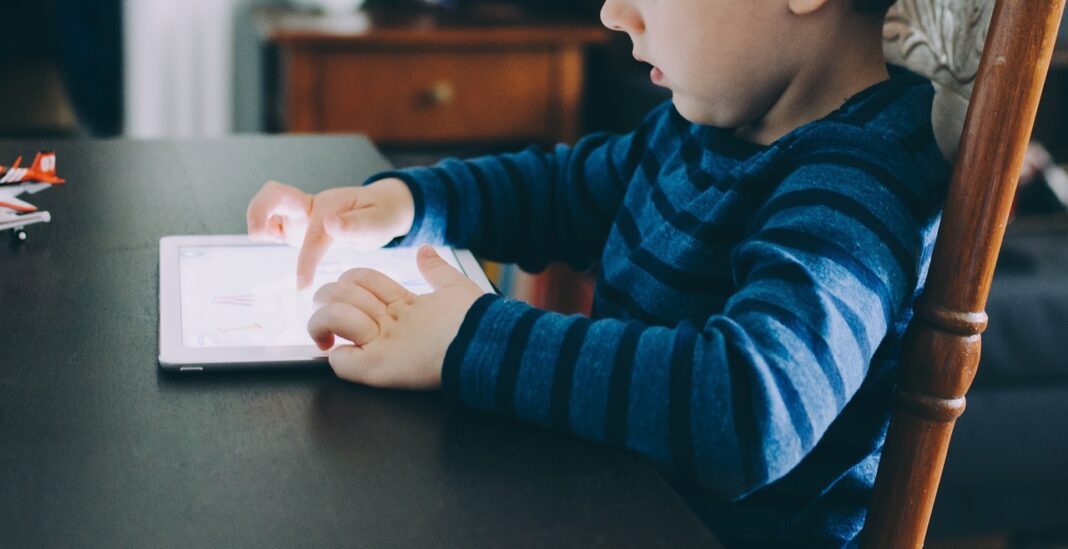This article is about you. At least, there’s a high chance it is.
We all know about the infamous “iPad kids.” However, we should take a moment to look past the negative stereotype and realize the reality. According to a survey, 50% of youth (ages 12 to 18) believe they struggle with mobile addiction.
In this article, I’m going to walk you through the significant and numerous struggles faced by those experiencing “iPad kid syndrome.”
What is an iPad kid?
An “iPad kid” typically refers to children and teens who are chronically online for entertainment and engagement, often through repetitive scrolling of videos or gaming.
In many cases, parents provide electronics to children at a young age as a quick solution to ease tantrums. However, this can quickly become the child’s primary method for avoiding troublesome behavior. Unfortunately, many parents may be unaware of the potential challenges their children could face in the future as a result of this reliance on screens.
A recent study revealed that approximately 1 in 3 people worldwide are at risk of smartphone addiction, highlighting this as a significant global concern.
Common signs and symptoms of device addiction, often referred to as “iPad kid syndrome,” include:
- Constantly reaching for the phone

- Spending excessive time on devices
- Waking at night to check notifications
- Experiencing negative emotions when unable to use the device
- Suffering injuries due to distracted use (e.g., texting while driving)
- Difficulty limiting phone use, leading to relapses
If you relate to any of these, you most likely fall into the category of “iPad kid.”
Side effects iPad kids face
Excessive screen time disrupts children’s development, mental health, and cognitive function. Early exposure can hinder neural connections, leading to delays in communication, motor skills, and social behavior. Research links screen use to higher rates of ADHD, depression, anxiety, stunted verbal intelligence, and reduced brain volume in areas governing language, attention, and emotion.
Physical effects include sleep issues, headaches, and fatigue, while a dvergames promote unhealthy eating habits. Extended video gaming and TV watching further harm verbal skills, self-image, and cognitive development, emphasizing the risks associated with unchecked screen time.
dvergames promote unhealthy eating habits. Extended video gaming and TV watching further harm verbal skills, self-image, and cognitive development, emphasizing the risks associated with unchecked screen time.
Adult “iPad kids”
Although “iPad kids” are typically referred to as Generation Alpha—people born after 2010—the term can also apply to anyone struggling with addiction to smart devices. TikTok users, including Gen-Z and millennials, have opened up about claiming the title of “iPad kid” due to their extreme phone addiction.
Some TikTokers admit that they can’t be separated from their phones for even as little as 10 minutes, as it causes symptoms similar to withdrawal. They acknowledge that their device dependency has diminished their attention spans and disrupted their daily lives, making it difficult to complete simple tasks without checking their phones.
Dopamine, a neurotransmitter and hormone that causes feelings of pleasure when released, is triggered by phone use, leading to increased screen time. Consequently, screen time is perceived as a form of addiction, similar to other dependencies.
Strategies to Combat Device Addiction
Dr. Daidone suggests several methods to reduce dependency on devices:
- Schedule device-free activities with family and friends.

- Take regular breaks from screen time.
- Engage in outdoor activities (e.g., gardening, swimming) to alleviate stress.
- Practice mindfulness through yoga and meditation to enhance focus.
- Adjust phone settings, such as switching to grayscale mode, to reduce visual stimulation and encourage less usage.
A study has shown that using electronic applications for less than 30 minutes a day and limiting media viewing can be associated with positive cognitive and psychosocial development in preschool-age children.
Conclusion
Now that we have explored the various ways “iPad kid syndrome” (otherwise known as phone addiction) negatively impacts people of all ages—both mentally and physically—as well as the strategies to combat it, we should take this information to heart and actively work to reduce our screen time. By doing so, you’ll be doing your future self a huge favor.
Sources:
What kind of adults will iPad kids be? | WIRED Middle East
The rise and fall of the iPad kid.
Impacts of technology on children’s health: a systematic review – PMC.
Screen Dependency Disorder: The Effects of ‘Screen Time’ Addiction.
How Screen Time May Cause Insomnia in Teens | Sleep Foundation
Smartphone addiction becoming a global concern.
50% of teens feel addicted to their phones, poll says | CNN.


A very well written article
Comments are closed.